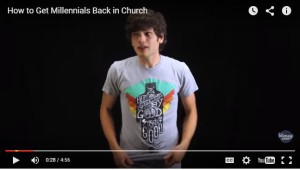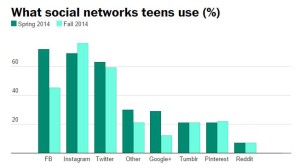
© 2015 GotCredit, Flickr | CC-BY | via Wylio
When I was going through college, there would be a salesperson outside our cafeteria everyday trying to get us to register for a credit card. In return for signing our name, we would receive a free t-shirt, a 2-liter of soda (usually Mountain Dew), or a $10 gift card for pizza. Preying upon the innocent, their tactics were shady, and their persistence was relentless.
The Credit Card Act of 2009 eliminated excessive marketing of credit cards to young people. It prohibits companies from wooing students with T-shirts, free pizza and other free gifts at university-sponsored events. This legislative act also requires those under the age of 21 to prove they have an independent income before applying for a credit card.
In spite of these safety provisions, emerging adults are racking up more debt than ever before. Here are a few statistics:
- The average credit card debt of college student is $3,173.
- The average credit card debt of graduating students is $4,100.
Please Note: These numbers only reflect their amount of credit card debt. We haven’t even mentioned the average amount of educational debt which is more than 35k. (Source) Overwhelmed by this burden, many college students do not even know their current student loan balance. (Source)
As someone who cares about emerging adults, it is time to begin discussing…
- how to improve money-management skills of emerging adults.
- how churches are consumers and contribute to this culture.
- how living independently by means of debt is not independence, but the entryway to bondage.
- how to battle consumerism in our lives.
- how we can effectively teach Jesus’ teaching about money.
In our discussions, we must acknowledge that debt is not a problem of emerging adults, but is an epidemic that affects Christians of all ages.
Maybe the whole problem is that emerging adults have learned from watching us, and our inability to respond to consumerism.
Leave a comment below to express your thoughts or leave a link to a resources on finances.
Financial Resources:
 Dr. G. David Boyd is the Founder and Managing Director of EA Resources, a non-profit designed to equip parents and churches to minister to emerging adults.
Dr. G. David Boyd is the Founder and Managing Director of EA Resources, a non-profit designed to equip parents and churches to minister to emerging adults.






 This article attempts to give an overview of student credit card use by presenting some statistics taken from Sallie Mae’s National Study of Usage Rates and Trends of Undergraduate Student Credit Card Use released in April 2009.
This article attempts to give an overview of student credit card use by presenting some statistics taken from Sallie Mae’s National Study of Usage Rates and Trends of Undergraduate Student Credit Card Use released in April 2009. 



 What pains me is the defensive reactions of (typically older) generations that have said: “What are we going to do about those darn millennials?” That have talked at us more than talked with us.
What pains me is the defensive reactions of (typically older) generations that have said: “What are we going to do about those darn millennials?” That have talked at us more than talked with us.
